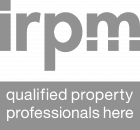20 September 2022
As a professional managing agent, from time to time we hear from leaseholders who would like more of a say in how their development is run. Homeowner-led property management options exist to help provide this increased control, working best when leaseholders partner with a professional managing agent, such as FirstPort.
Here, we explore Right to Manage (RTM) in more detail and explain what’s involved:
What is Right to Manage?
The Commonhold and Leasehold Reform Act 2002 gives leaseholders of flats the statutory right to manage their development by setting up a special company, known as a Right to Manage (RTM) company.
The responsibilities of an RTM company include:
- Organising budgets and deciding where to spend service charge funds
- Ensuring the company’s financial records are accurate and up-to-date
- Arranging the maintenance of the building and its communal areas
- Organising repairs and refurbishment
- Ensuring the building and communal areas are compliant with relevant laws and regulations
With a lot of work to do, an RTM company can appoint a professional property manager with the expertise and experience to help with workloads and carry out any property management services. The RTM company will make the decisions about what work to do. The property manager will do the work the RTM company instructs it to do.
RTM company criteria
There are certain criteria that a development needs to meet in order to set up an RTM company, including:
- This right only relates to one building. If you live on an estate with several buildings, they all need to qualify and set up individual RTM companies.
- Two-thirds of the properties must consist of residents given an original lease of over 21 years.
- You cannot exercise the Right to Manage if any properties in the development are owned by a local housing authority.
- If the development has any commercial areas, they cannot exceed 25% of the total development area.
- You cannot exercise the Right to Manage if the properties fall within the “resident landlord exemption”. The exemption applies if:
- The building is not a purpose-built block; and
- There are not more than four flats in the building; and
- The freeholder, or adult family member of the freeholder’s family, has lived in one of the flats for the previous 12 months.
- The RTM can only be exercised by a Right to Manage company. The company must have enough members – at least half of the total number of properties in the development.
The formation of an RTM company
The Right to Manage can only be exercised by an RTM company, it cannot be exercised by the leaseholders themselves.
Setting up a Right to Manage company can be quite complicated. Leaseholders can employ a property manager, such as FirstPort, to help them form an RTM company and support them through the process.
Once you know the development qualifies and you understand the responsibilities involved, there are a number of steps you need to take to form an RTM company, including:
- Completing documentation, including the Memorandum and Articles of Association
- Formally inviting qualifying leaseholders to become members of the RTM company
- Liaising with the landlord and, if applicable, the current managing agent
- Ensuring the right insurance is in place
Advantages of setting up an RTM company
The power is in your hands
You are in control of your development and are free to make whatever decisions you feel are best for you and your fellow leaseholders. The RTM company has a lot of significant responsibilities, including where budgets are invested, what maintenance works happen, and managing service charges.
A shared voice
All members of the RTM have an equal vote.
A choice of suppliers
As a professional managing agent, we know how important it is to work with quality, good value suppliers to make sure your development stays looking its best. That’s why we have a fully accredited supply of 2,500 contractors plus an additional 30,000 suppliers available through the SafeContractor network.
Our network of suppliers helps drive down costs through economies of scale and because they are accredited, you’ll know they meet health and safety standards, are ethical and have the correct insurance in place.
Things to consider when setting up an RTM company
It can take up a lot of time
Setting up a Right to Manage company can be a lengthy and complex process. Some members will have to volunteer to be directors of the RTM company. Once you become a company director, you have duties and responsibilities to uphold that can be time-consuming.
It’s a big responsibility
Becoming a company director comes with a lot of legal responsibility.
It requires specialist knowledge
Being a director of an RTM company requires knowledge of relevant housing laws and safety regulations to ensure your development stays compliant. These laws and regulations are very complex and require a specialist to understand them. That’s why a lot of RTM companies work with professional managing agents like FirstPort, who have the experience and expertise to help RTM directors meet their management obligations.
Trust FirstPort to support your Right to Manage company
We have over 40 years’ experience managing properties, so our expertise is unmatched. We can help you set up your RTM company and provide you with all the property management services you need.
See our Resident Managed Developments page for more information, or simply fill in the contact form below and we’ll be in touch.
-
![]()
Resident Managed Developments
-
![]()
The Role of a Resident Director
-
![]()
The Resident Director Survey 2022
-
![]()
03. How we support Resident Management Companies (RMCs)
-
![Residential property manager]()
The benefits of using a property management company
-
![]()
Smooth sailing at The Waterways with our RMC partnership
-
![]()
Getting things shipshape with Right To Manage Directors at Centre Quay
-
![]()
Top ten traits of effective Resident Directors
-
![high-rise block management]()
A simple guide to residential block management
-
![Modern residential property development]()
The differences between leasehold and freehold property
-
![resident directors smiling]()
How Property Managers, Resident Management Companies and Right to Manage Companies look after a development















